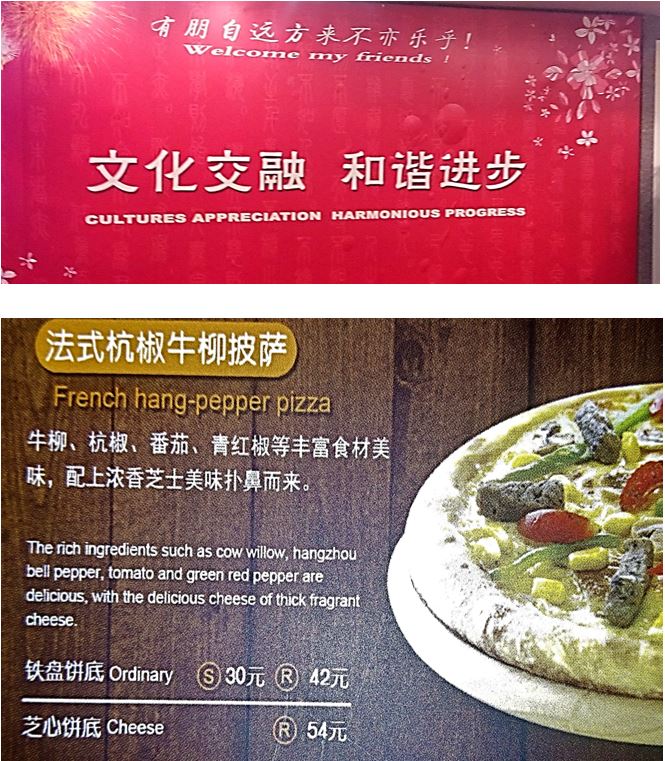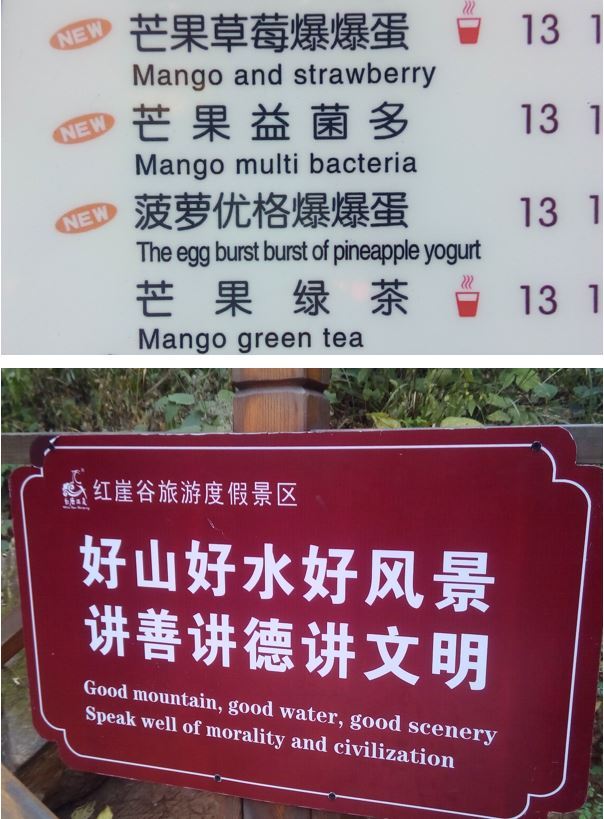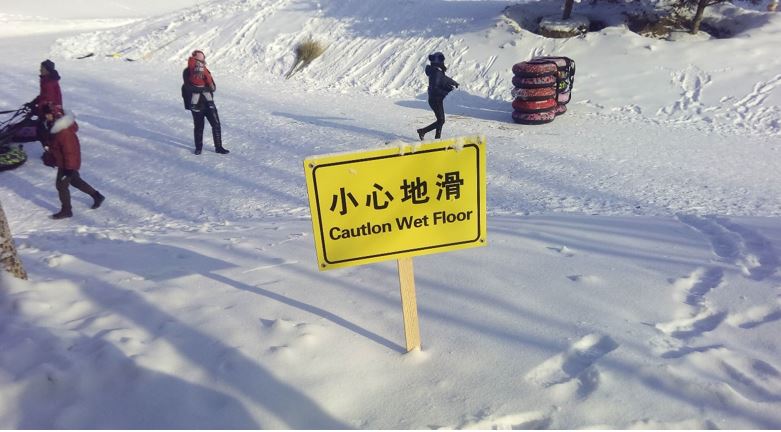A weekend in the sky
Hi everyone, here’s a short blog post about our first weekend trip in China to the world’s longest glass bridge in Hebei Province.
One thing living in China has taught me is to be prepared for the unexpected, often at very short notice. One Wednesday last October, after I’d finished class and was about to cycle home, two Kenyan friends passed by and said, “Hey Arran! This weekend we’re joining a tour to the longest glass bridge in the world. You should come along, we need more numbers – ask all your Scottish friends too.”
At first I was hesitant because of the little time to prepare and mid-term exams around the corner, but after sharing the idea with the group many of us were willing, excited by the thought of a spontaneous escape to the countryside. So, on Saturday morning we found ourselves on a minibus crossing the border to the neighbouring province, without a thought to where on the map we were going, where we would spend the night or what was on our itinerary.
In the afternoon, we arrived at a nice little tourist village, built with traditional Chinese architecture, at the bottom of a valley above which hung a massive glass bridge. At a length of 488 metres, it’s the longest in the world, and only finished construction in December last year. We went straight up the mountain, step by step, to the entrance of the glass bridge, where we had to put plastic covers over our shoes to protect the glass from cracking.
Crossing the bridge wasn’t as scary as I’d imagined, even with a view of the valley’s tree-covered slopes 200 metres beneath my feet. It was actually rather peaceful, being in the open air miles from any town or city. That being said, I could hear an occasional car horn blaring in the distance!

In the evening we went to some hot springs at a nearby hotel – a large network of outdoor hot-water pools connected by garden paths. Some were in caves, others in bamboo forests, and others in small huts. Some pools were even scented with fragrances like honey, ginseng, milk or aloe vera. Attendants would rush over to ensure we always had towels and slippers when walking between pools, and would even ask me quite emphatically, “nǐ de tuō xié zài nǎr? (where are your slippers?)” when I walked past in bare feet. I don’t think any of us were expecting such luxury – there couldn’t have been a more pleasant way to end a day of mountain climbing!
I’ve made a video in Chinglish (part Chinese, part English) showing more of what we got up to that weekend. It’s my first time making a video like this, and it was a fun experiment. I’d like to do something similar again for future travels. Enjoy!
Watch the video here.
Some Food for Thought: Direct Translation
Perhaps the most amusing part of life in China is the English translations. Wherever you are, you can always find signs, menus, adverts, etc. which have been translated in quirky and interesting ways. Here are some examples:



Examples like these demonstrate the difficulty of translating between English and Chinese. From studying French, you may have seen that it’s difficult to find direct translations for some French words, because their exact meaning can’t be described with just one word in English. It’s the same vice versa – I’m sure Madame Reeves will tell you about one time in class when we tried looking up the French word for “cattle-grid”.
However, because Chinese is far more different to English than French, it’s even harder to translate the meaning of certain words exactly. This results in very awkward English all over the place where signs, notices and messages are simply translated directly, without much effort into making them sound fluent.
One good example is the Chinese dish bào dǔ (爆肚), meaning “quick-fried tripe”, which is sometimes translated on menus as “Explodes the stomach” (not the most appetising choice, you might say). This is because the word bào literally means “explode” but can also refer to quickly frying food in oil – a scary, lightning-fast cooking method, almost like an explosion. Dǔ can mean either “stomach” or “tripe” depending on the tone it’s pronounced with.
Can you think of any French words which don’t really have direct translations in English, or vice versa? Can you guess what makes some words trickier to translate than others? Do you think there is even such a thing as “direct translation”?